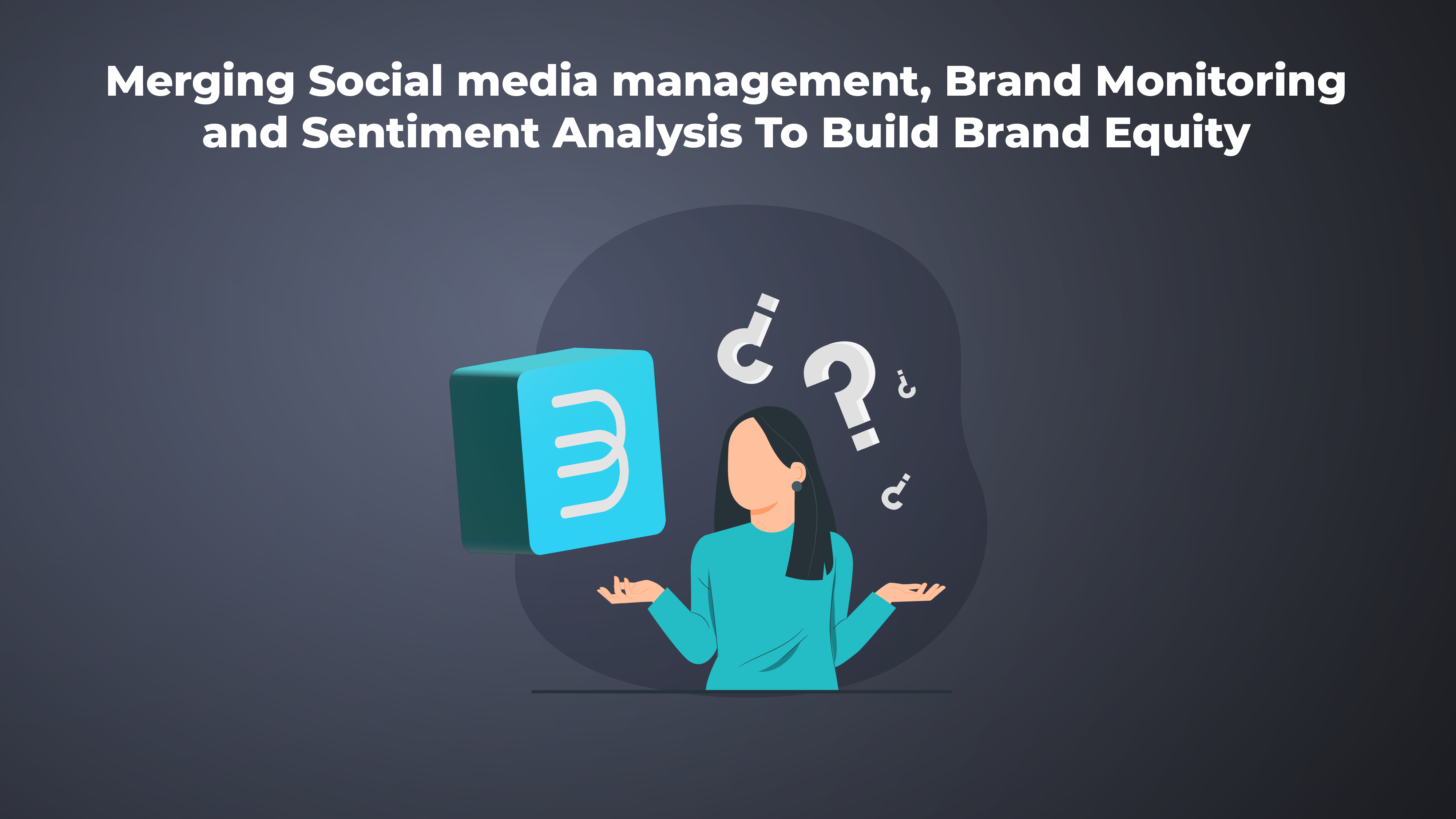Merging SMM, Brand Monitoring, and Sentiment Analysis.
Role of Social media management in building BrandEquity
To comprehend the significance of social media management in developing brand equity, one must first comprehend what social media management is?
Social media is integral to building and maintaining a brand image, especially for growing businesses; therefore, managing social media is important.
Social media management is the ongoing process of analyzing social media audiences and developing a strategy that’s tailored to them, hence creating content, publishing, and monitoring your presence across multiple social media platforms, monitoring online conversations, collaborating with influencers, providing community service, and monitoring, measuring, and reporting on social media performance and ROI. Therefore, these play an important role in building a brand’s brand equity.
Its benefits include:
Humanizes the brand
The capacity to make genuine personal relationships with customers in order to demonstrate how our brand embraces your brand values, how products perform in real life, and how you prioritize the needs of your employees and customers.
Increase brand awareness
Social media platforms are used by brands to promote their brand names and increase their brand’s awareness.
Promotes the brand and sales
Social media is crucial for establishing your brand’s trust, as well as for promoting it and increasing sales.
Role of brand monitoring in building BrandEquity
Let’s start with a definition of brand monitoring and why it’s crucial for brand development. Brand monitoring is the process of following your brand’s mentions across many channels in order to determine how it is viewed. You’ll gather data, analyze it, and put what you’ve learned from monitoring your mentions into practice. Knowing where and how people are talking about your brand will help you better understand how they feel about it and provide you with vital feedback.
Brand monitoring necessitates a comprehensive methodology that aids in brand equity development. Take a look at the good, terrible, and ugly. Pay attention to all of the mentions, not just the positive ones. Negative mentions may be the most useful in revealing areas in which your brand may improve. Overall, brand monitoring is beneficial for brand building in many ways, that include:
Improves customer experience and retention
Revenue is generated by retaining and keeping consumers loyal. Listening, reacting, and assisting customers are all things you can do with a brand monitoring solution. It examines the data you acquire while monitoring your brand and places it in context with the rest of the industry.
Creates a customer-centric outcome
Even if our marketing is good, you can’t continue a firm with a lousy product. Customers trust internet product reviews and finished goods. They will not accept anything less than the greatest and will seek out the best option. They read and post online evaluations and speak out or use social media to express themselves.
Improves marketing impact
Due to the increased need for digital marketing, marketers must be more relevant and targeted than ever before. And the most important factor is client happiness. The more you know about demographics, intent, sentiment, likes, and dislikes, the more personal you can be. Brand monitoring provides you with crucial customer insights.
Role of sentiment analysis in building BrandEquity
The practice of assessing data on what your audience genuinely thinks about your business is known as social media sentiment analysis. It’s a fantastic tool to have in your analytics toolbox. Rather than just focusing on quantitative data (likes or comments), brand sentiment examines the context of the encounter to acquire deeper insights.
A social media sentiment analysis looks at all of your digital brand mentions, reviews, and comments to see what emotions they elicit. As a result, brand owners will be able to follow their brands’ sentiments and improve their brand equity as a result.
It is beneficial to conduct social media sentiment analysis due to several reasons that include:
Deliver valuable content for social media
Seeing the social media material that your audience engages with the most is like peering into their minds via a crystal ball. You’ll quickly learn what to publish and what not to post on your social media networks.
Leads to proactive business solution
Businesses obtain real-time knowledge through sentiment analysis, which helps them make better decisions. It also aids in the development of the best plans and goals for optimal consumer involvement. It generates event analysis, customizable segmentation, and automated reports.
Increase conversion rate optimization
Brand loyalty is boosted when your company’s interactions with its customers are in sync. The more devoted they are, the more likely they are to purchase from you.
Merging brand monitoring and sentiment analysis with social media management to build Brand Equity
We’ve come to the conclusion that brand monitoring, sentiment research, and social media management are all critical components of brand equity development. Brand monitoring aids in the management of a company’s image, attitudes, and client feedback. Sentiment analysis, on the other hand, tracks all forms of brand feelings, whether positive, negative, or neutral. Social media management merged with brand monitoring, and sentiment analysis makes a good combination for brand building. It can be observed that if one of these traits is useful for developing brand equity on its own, combining them all can be beneficial.
